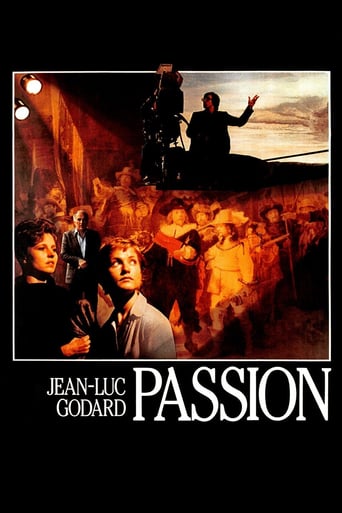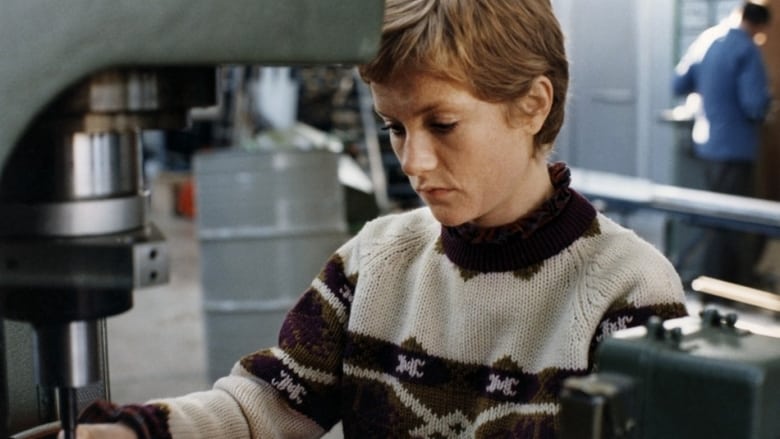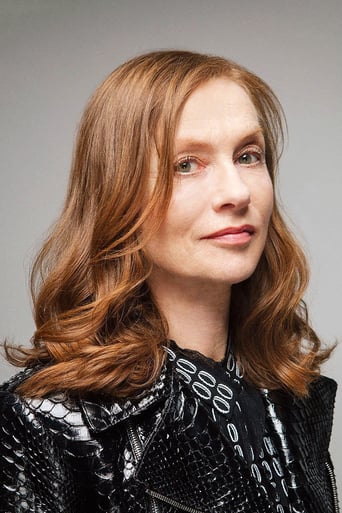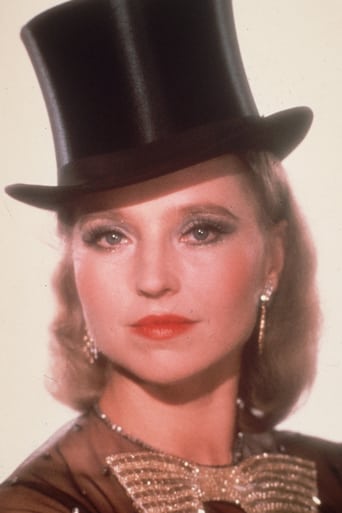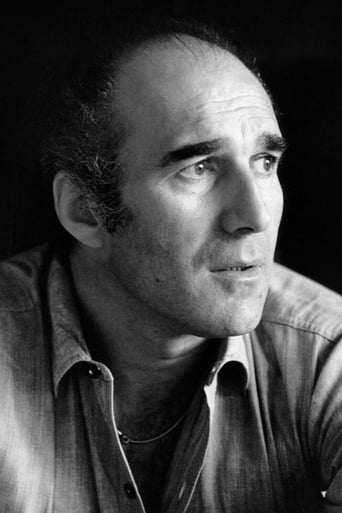Godard's Passion (1983)
While shooting a film, the director becomes interested in the unfolding struggle of a young factory worker that has been laid off by a boss who did not like her union activities.
Watch Trailer
Free Trial Channels
Cast


Reviews
Most undeservingly overhyped movie of all time??
Absolutely amazing
I am only giving this movie a 1 for the great cast, though I can't imagine what any of them were thinking. This movie was horrible
It really made me laugh, but for some moments I was tearing up because I could relate so much.
Have you ever watched a movie and been aware of how much your emotions are being manipulated? Your buttons being pushed?Just before I watched this film, I'd seen neuroscientist Susan Greenfield say how modern media encourages a sequence she calls arousal-addiction-reward. And stimulating that mental pathway releases dopamine, which inhibits the part of the brain associated evaluating social behaviour, planning complex cognitive behaviour, personality expression, and decision making. Most films are designed to produce emotional response. We are aroused (for instance) by the plight of the leading lady, addicted to the drama long enough to see what happens, and then suitably rewarded when she marries and lives happily ever after. Not only have we been told what to feel, but our critical thinking is subjugated into passive viewing. Unbiased appraisal of hypothetical outcomes is largely overridden by dominant subtexts. Critical thinking off: mainstream message on.Godard claims he makes films to invite audiences to think, not to feel. The complex concept and metaphor (rather than adrenalin-filled) stories, can at first seem boring. Lacking in formal narrative, they flop at the box office, yet go on to critical acclaim and canonical status. Passion examines this discrepancy between a film as a piece of art versus the demands of commercial cinema.Passion is a film within a film. Jerzy, a Polish filmmaker in western Europe, is re-creating tableaux vivants - masterpieces by Goya, Rembrandt, El Greco, Ingres and Delacroix. Tableaux vivants were a popular 19th century pre-cinema entertainment (described, for instance, in Sontag's novel, The Volcano Lover). Actors don't speak or move, and Jerzy is obsessing over light and shade while making up scenarios on the fly. His aesthetically ambitious film is two billion francs over budget. Money is needed. Meanwhile backers harangue Jerzy over his lack of storyline.The filmmakers occasionally go to a nearby hotel and factory to find extras. Jerzy seduces both the factory owner's wife and a worker, Isabelle (Isabelle Huppert), who has been laid off and wants her money. They are attracted to the artistic environment, finding an aesthetisized mirror of their daily life. Squabbles off-set seem to be echoed in set pieces (for instance, where a Crusader carries off a half-clad maiden). The idea is voiced that work and love share the same movements, underlined with typical Godardian 'food for thought' such as, "One has to work on loving or love working."With painting, image takes precedence over movement. The viewer supplies movement, or 'narrative,' by imagining a backstory or the painting's creation. With film, movement takes precedence over image. Brechtian techniques can be used to jolt audiences into awareness of stillness, or a concept contained in the film, allowing us to approach it from different angles much as we would a sculpture. Some techniques here used by Godard include extended L-cuts: we hear one woman talking but the camera is on another woman who is talking at the same speed, her voice muted (symbolically unheard). We watch an actress as she watches herself: on a video monitor, where she is struggling to lip-synch an operatic aria. That the film mirrors the film within the film, and also its own making, focuses our attention on the idea of what we are watching rather than the visual spectacle itself. Godard breaks down the barrier between documentary and fiction: "It's not a lie but, rather something imagined, not the exact truth, nor the opposite of truth. It's set apart from the real as it appears by the thoroughly calculated approximations of verisimilitude."In making his Passion (the word can be taken in all three senses), Godard, like Jerzy, experienced resistance from actors because action is organised around images rather than a script. He created scenarios on a day-to-day basis as the film was being shot. For non-Godard fans, Passion is less hard work than his most abstruse work, but still takes effort to figure out what is happening rather than dismiss it as meaningless self-indulgence (which on casual viewing would be very easy to do). Once that investment has been made, it contains not only considerable satire, but enough material to engender repeat viewing. Although there are some political overtones, they are more in the background than with his earlier work. The film can also be admired for sheer exquisiteness, attention to detail, and perfect lighting in its re-creation of famous paintings. Amidst the mayhem of the studio and the baring of the director's soul, the young woman dancing clumsily around with a robe falling off, the young girl told to lie naked in the pool as a star-shape, or the cherub with a pointing finger – all are transformed into images of utter beauty. Godard's rendering of Rembrandt's Nightwatch is uncanny to anyone familiar with the painting. Goya's Nude Maja closely resembles Godard's live copy. The characters in Godard's version of Ingres' Small Bather might be inexact, but a comparison draws attention to the perfectly reproduced luminescence of the woman's skin – an effect achieved by perfect lighting – lighting that makes the human image semi-divine. "An image is not powerful because it's brutal or eerie," muses Jerzy, "but because the solidarity between ideas is distant and just."Passion is an outpouring of the creative process, inspired, according to Godard, by Titan's Bacchus and Ariadne. Together with First Name Carmen and Slow Motion, it is is one of three films by Godard showing directors struggling with 'impossible' projects. I sometimes find Godard almost spoils me for conventional cinema. Like one of his characters, I find myself muttering, "Don't push my buttons! OK?"
Do not listen to the film buffs who call this "art" and a series of vignettes that defy any meaning, its worthless and boring. The whole film has no interest to offer, what it tends to portray is stuffy French poseurs who smoke and talk about nothing in particular, that isn't very entertaining. I was dragged to the ending finally and was exhausted by the absolute uselessness of this picture and of Godard himself who isn't a very capable film director. What irks me is that such a banal director can be heaped upon with praises for such a tedious work. Most of the shots are badly lit and with no sense of remedial drama at all, it reminds one of Von Trier's overrated work as well. Makes good torture for prisoners with TV sets.
If one were to hold up a camera to life and to film for ninety minutes, the result would be, more than likely, a boring snapshot of the banal and mundane. These snapshots of life would have no narrative, would be disjointed and chaotic, for such is life. Godard's Passion struck me as just that, a snapshot of the banality of life, the disconnected, seemingly meaningless misadventures of ordinary people, captured in one moment of time. But of course, these are not ordinary people in ordinary circumstances, these are the creations of Godard's imagination, yet the presentation of the content of the film is without structure, narrative or any of the Hollywood conventions of 'good filmmaking'. I found the film compelling and intriguing; I wanted to know more about the people and the universe that they populated. The lack of narrative structure was not a negative factor in my enjoyment of the film, for the anarchic content was, of itself, enough to keep my mind from wandering away from it. Godard's reflexive jibes at cinema convention were acerbic and witty, carrying with them a tremendous knowledge of the mechanics of filmmaking. The story of Passion, what story there is, is subservient to the process of filmmaking and Godard's desire to subvert it. For me, that is what makes this film so entertaining.The influence of Godard's work on other filmmakers is probably most profound in European cinema where the role of the Auteur is, if not quite nurtured, respected. It was a delightful surprise for me when, having seen Passion, I began to draw connections between Godard's storytelling and popular TV comedy. The First Series of the BBC comedy 'The Office', by Ricky Gervais and Stephen Merchant, leapt to mind as I mulled over Passion. The non-structure of Passion is very much evident in The Office, where the stories unfold as snapshots and moments in time, captured, and heavily influenced by the presence of the cameras. The Office is probably the most original piece of TV comedy since Monty Python's Flying Circus, yet I can see the influence of filmmakers like Godard in its presentation. Although there exists an A plot, B plot and guest plots, typical TV structure, in The Office, it is the presentation that makes all the difference. If handled in a more traditional fashion, it is highly unlikely that The Office would ever have been made, never mind popular. Even the origins of The Office pay homage to the anti-structural approach of filmmakers like Godard. Conceived and performed as an adlib piece on a BBC director's course by Gervais and Merchant, it shined with originality and a deep knowledge of and healthy disrespect for, convention; much like Godard really.The success of The Office owes much to its originality and wit but also to the possibility that the audience is searching for a new experience in terms of storytelling both on television and film. The irony is that this type of storytelling has been with us since Godard and long before Godard. Perhaps the audience has finally caught up with the filmmakers.
This is a good introduction to late-period Godard: all (ideological) passion spent, Oncle Jean is just going to show us a good time. Pretty girls lolling around the pool naked, glamourous stars like Hanna Schygulla with little to do, Isabelle Huppert when she could still play dewy-eyed ingenues, a ridiculous peplum being filmed by greedy, unscrupulous types (the director should have been played by Jacques Dutronc instead of that dour Polish actor).It's 1982,these are the Thatcher-Reagan years, nobody thinks about Vietnam or the Palestinians or civil wars in Africa--people only want to make money. Godard gives us hip product-placement, Rembrandt, Caravaggio, Mozart instead of Coke or Pepsi.

